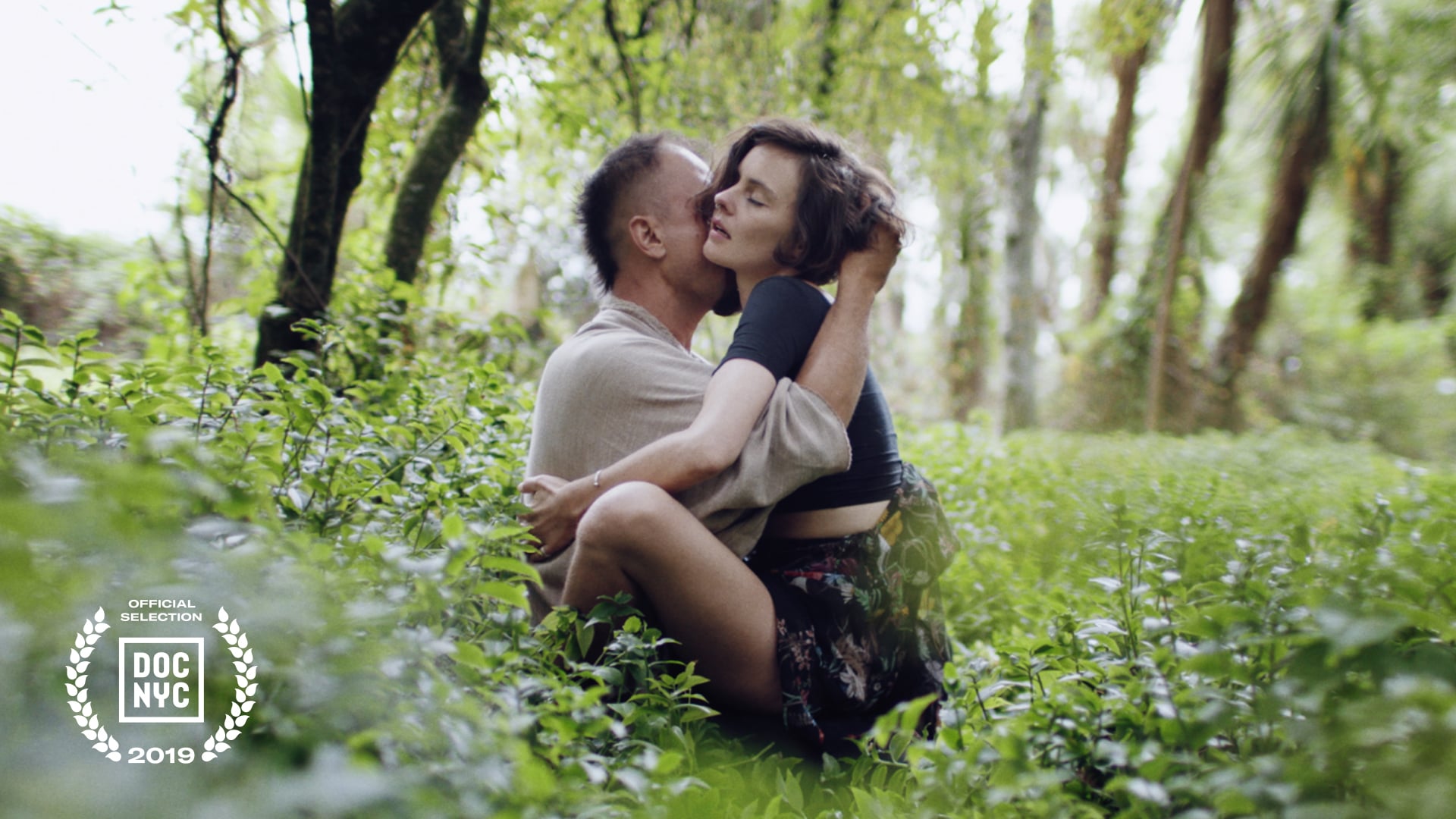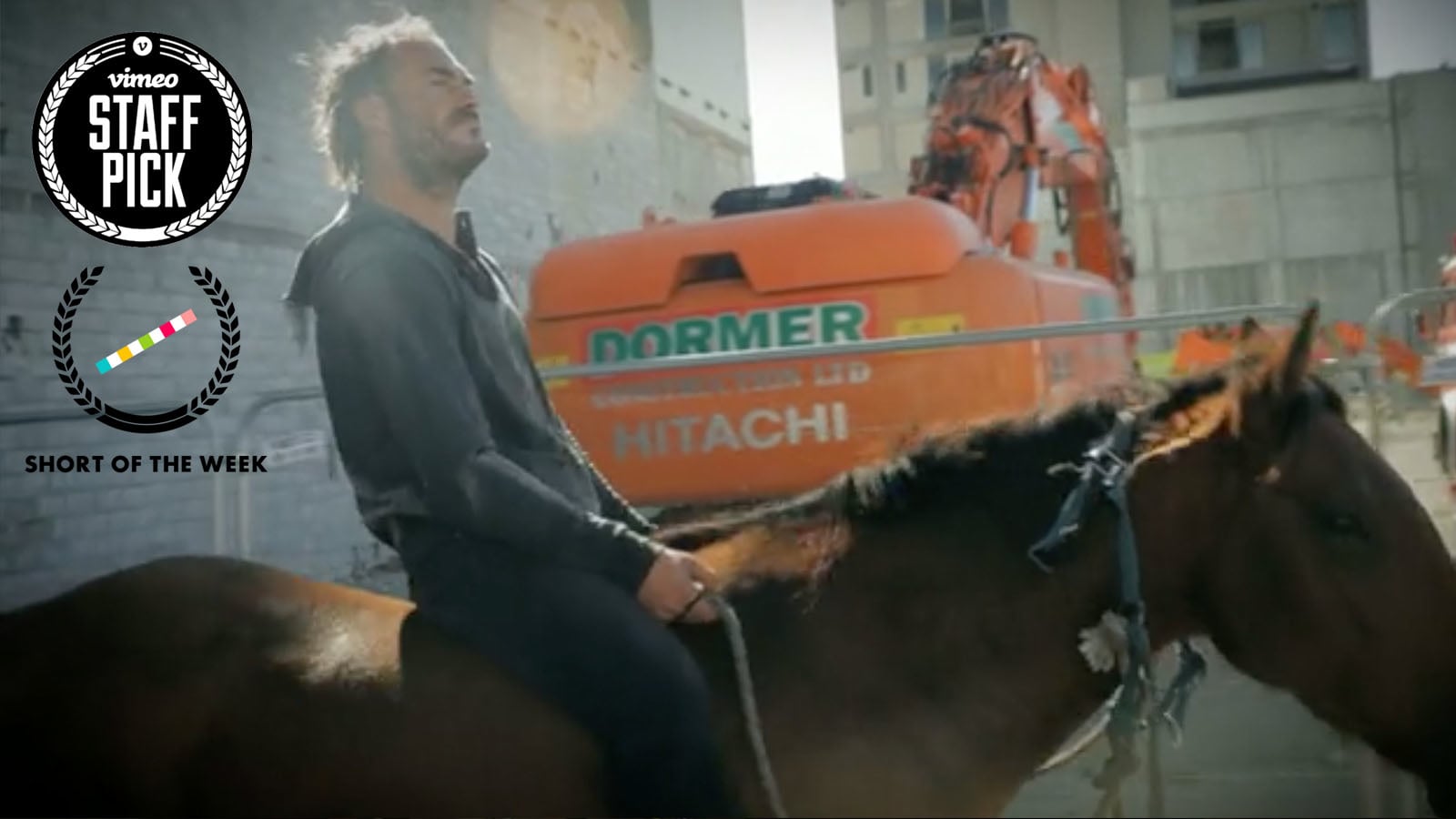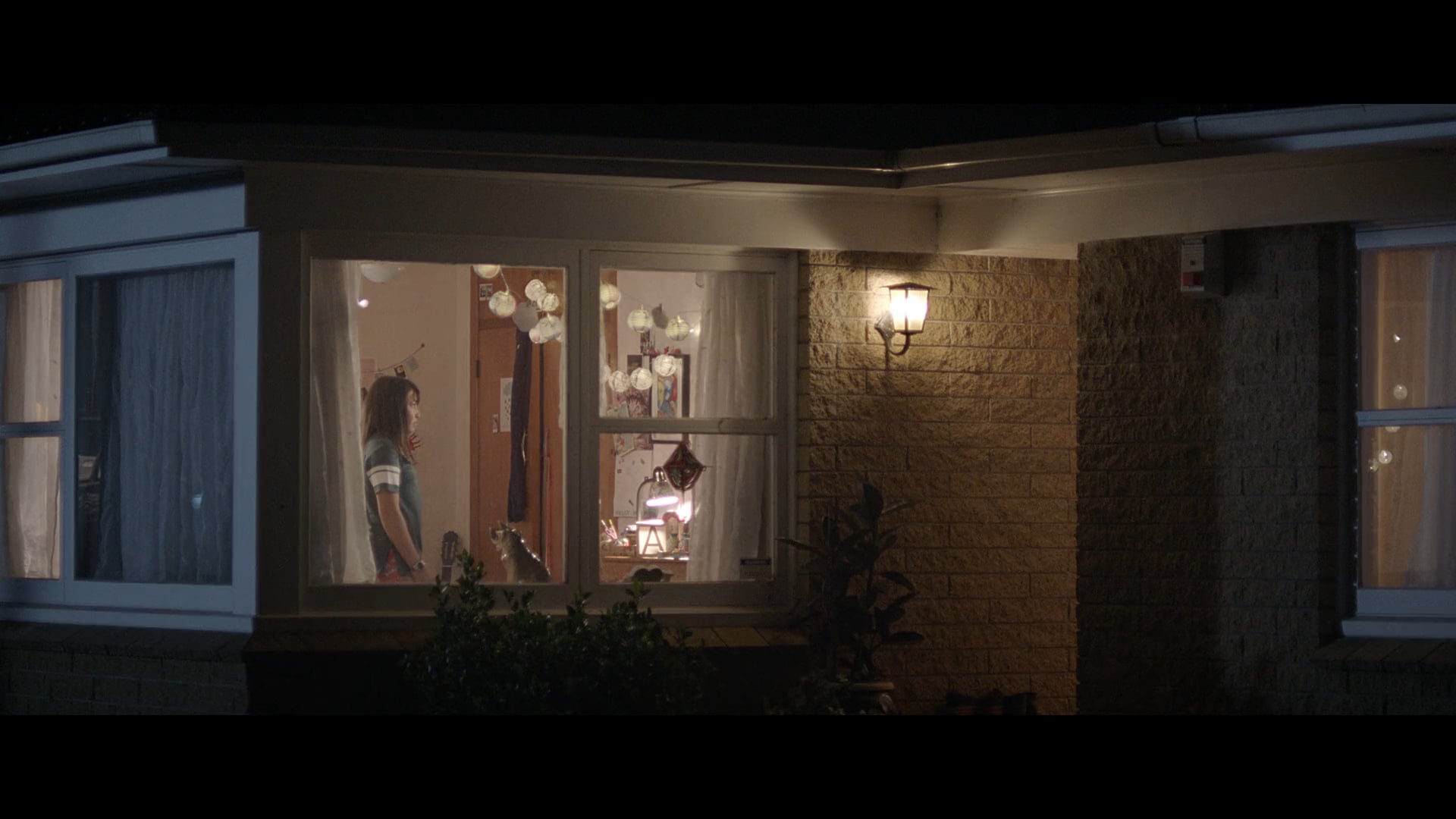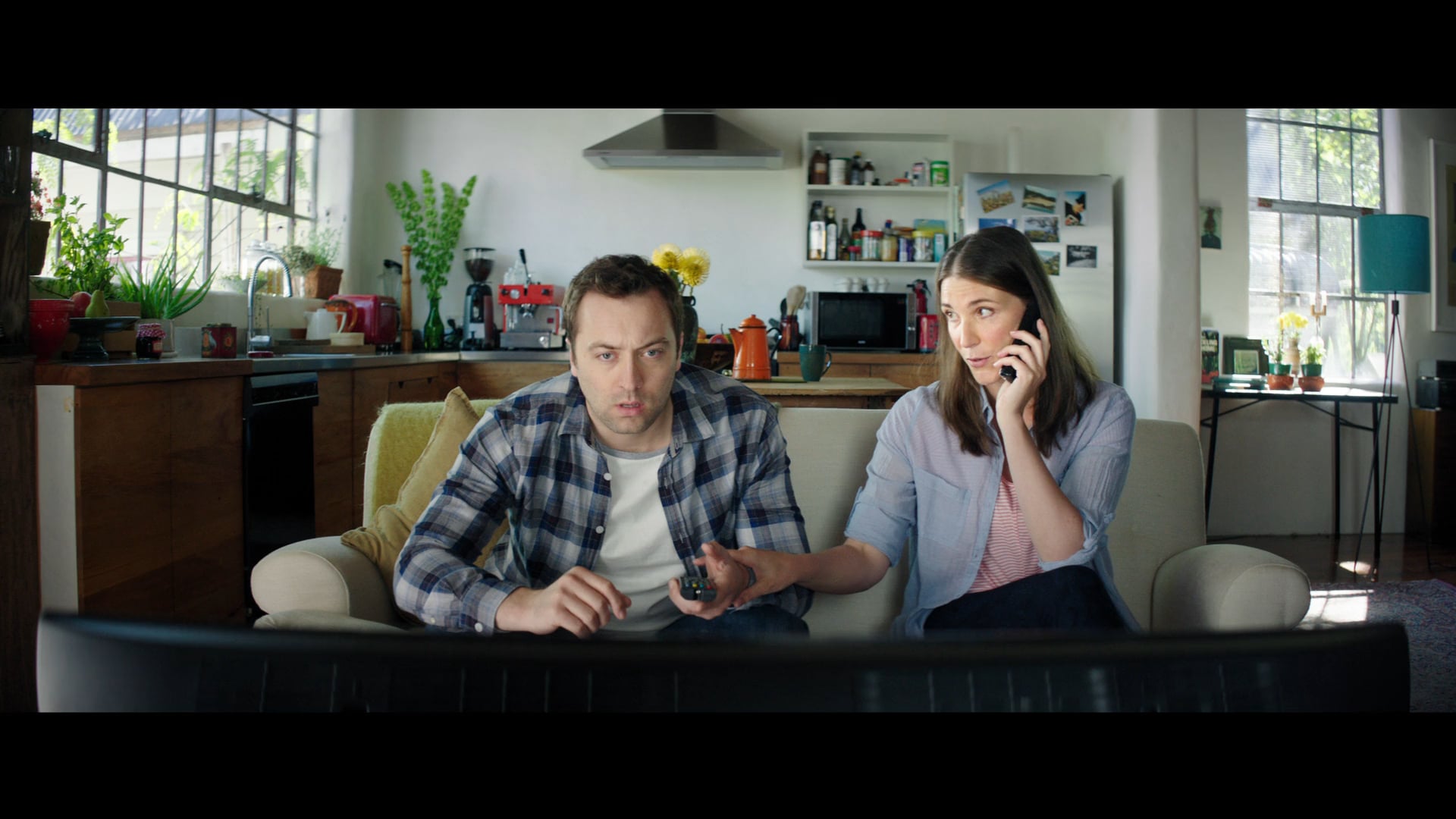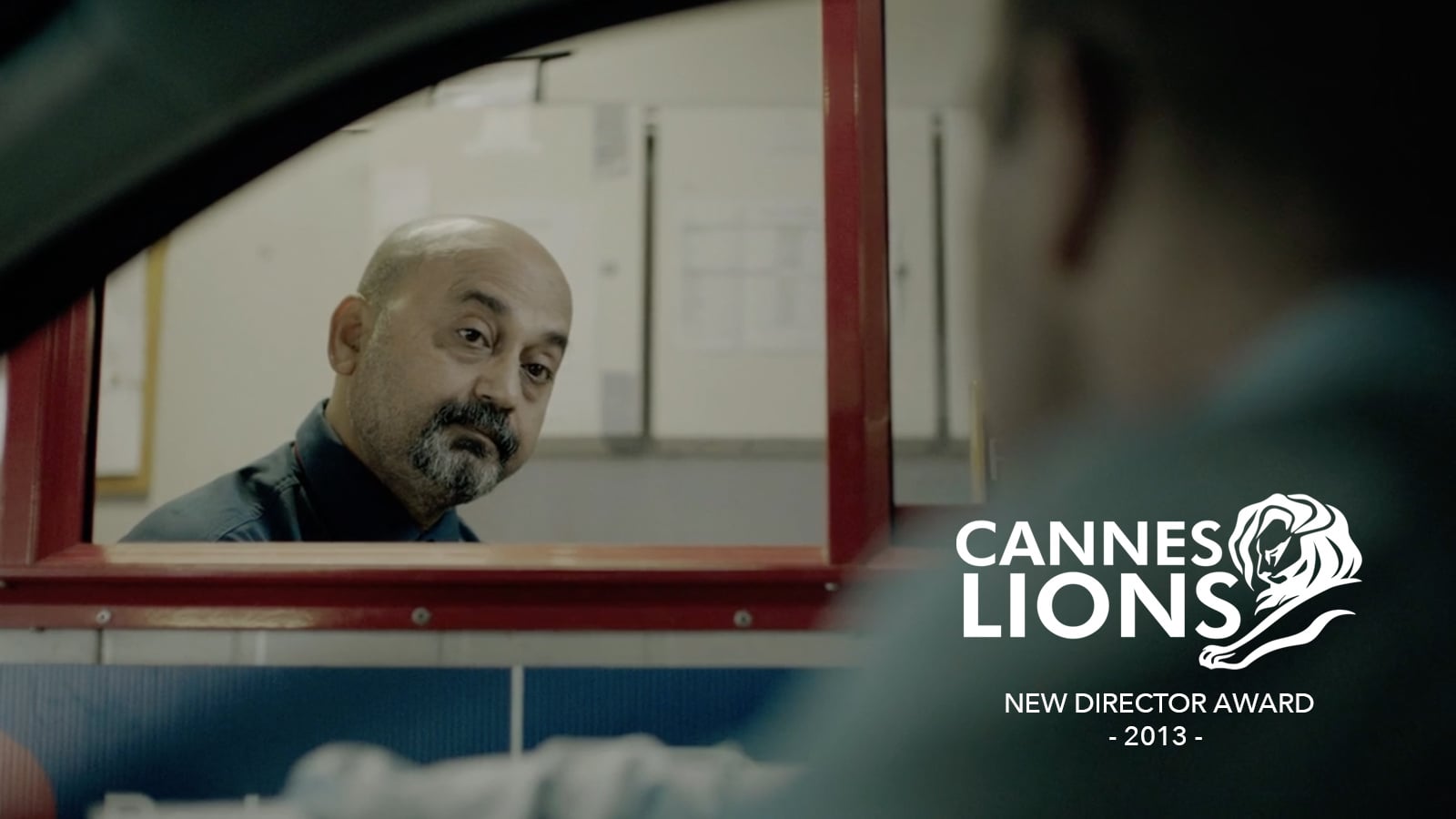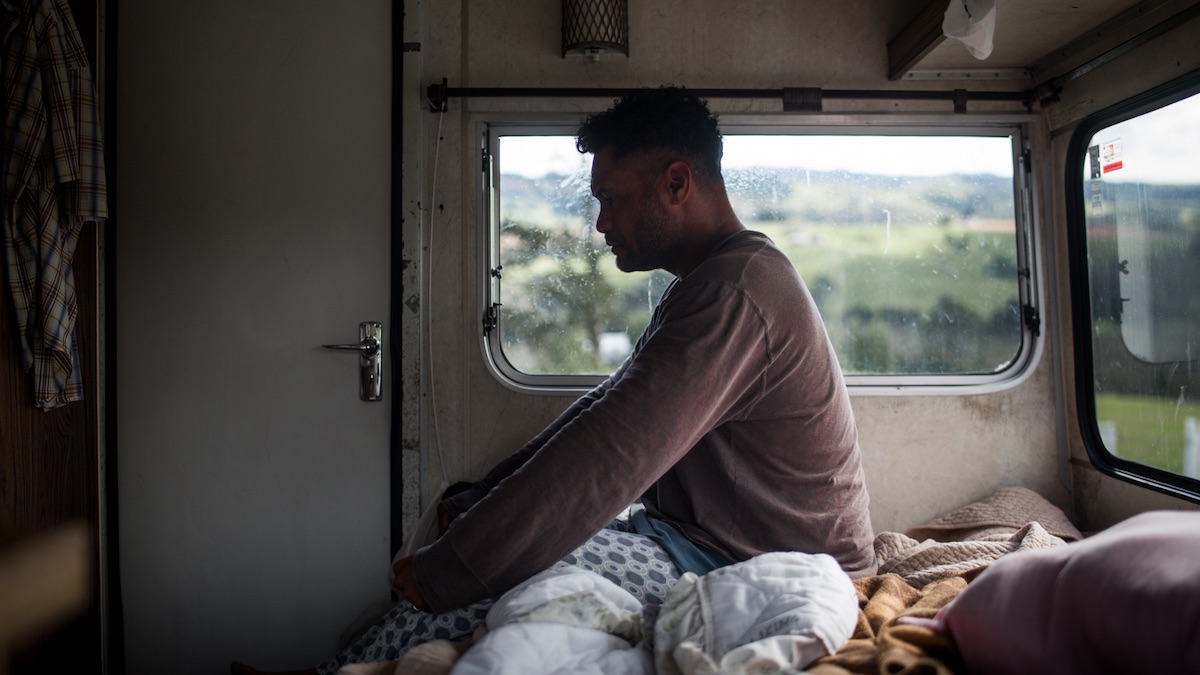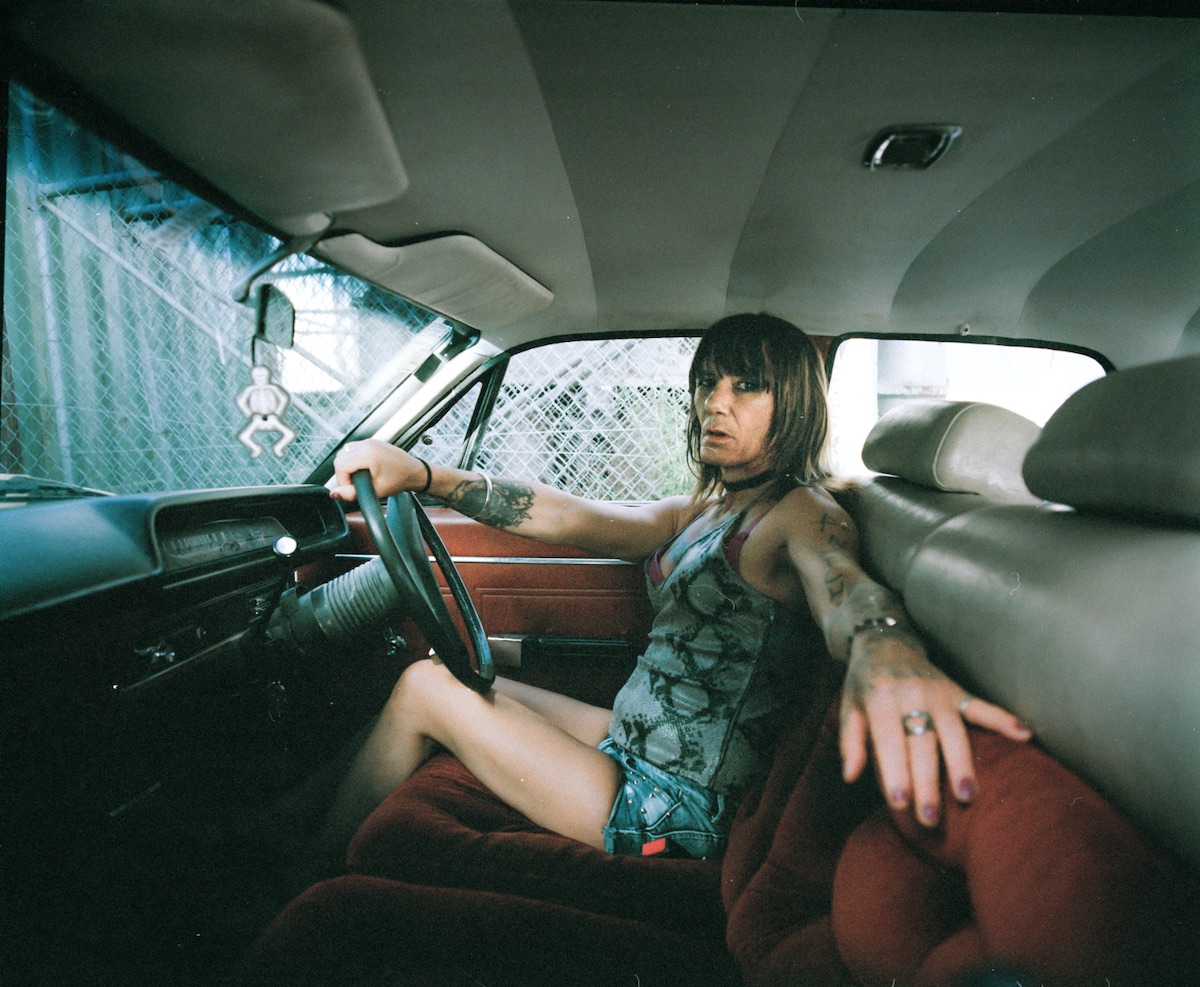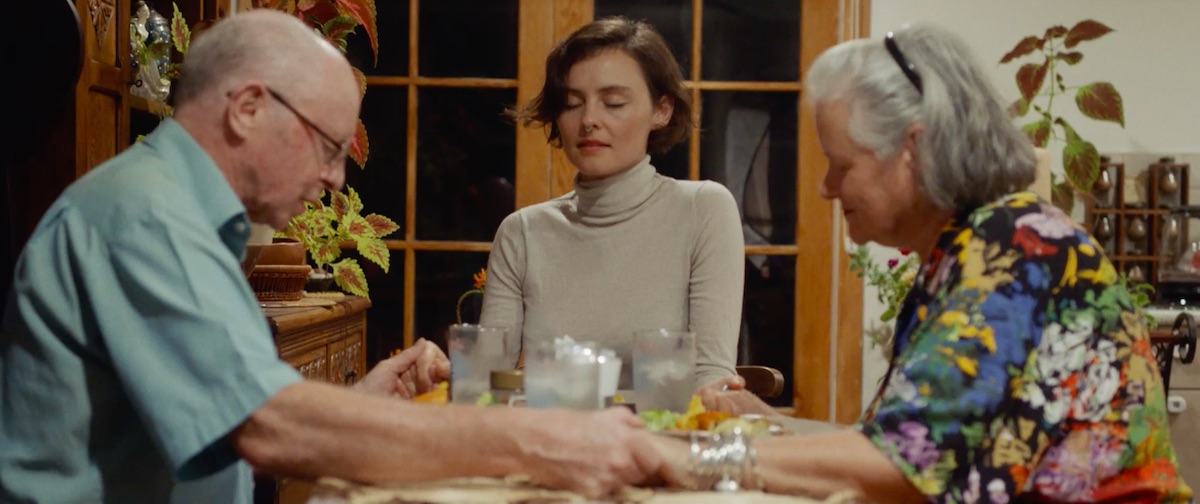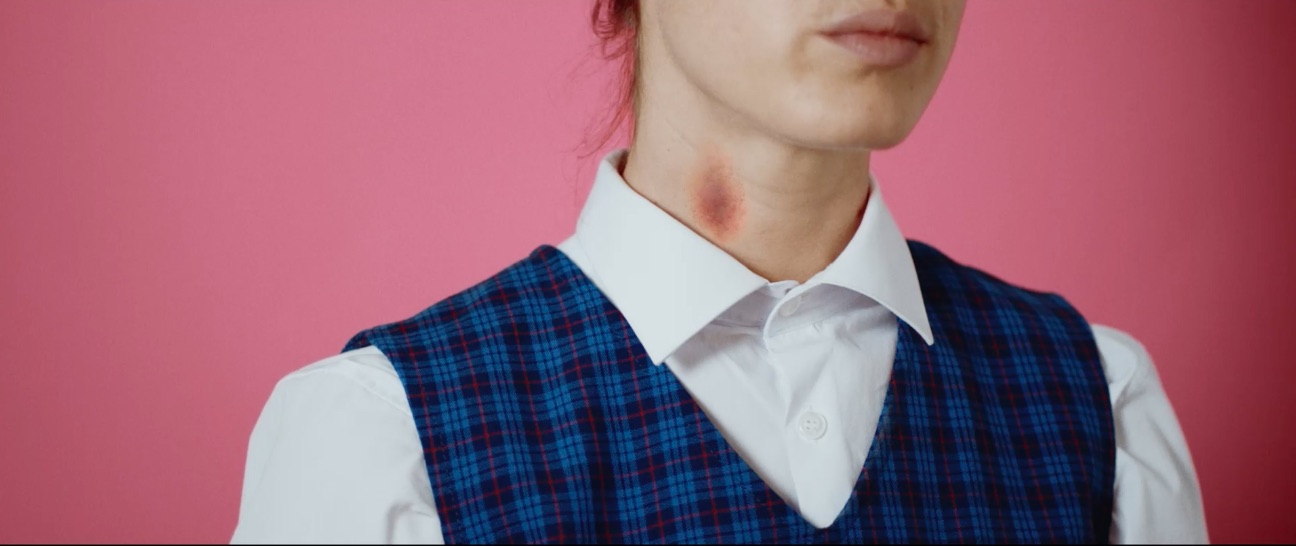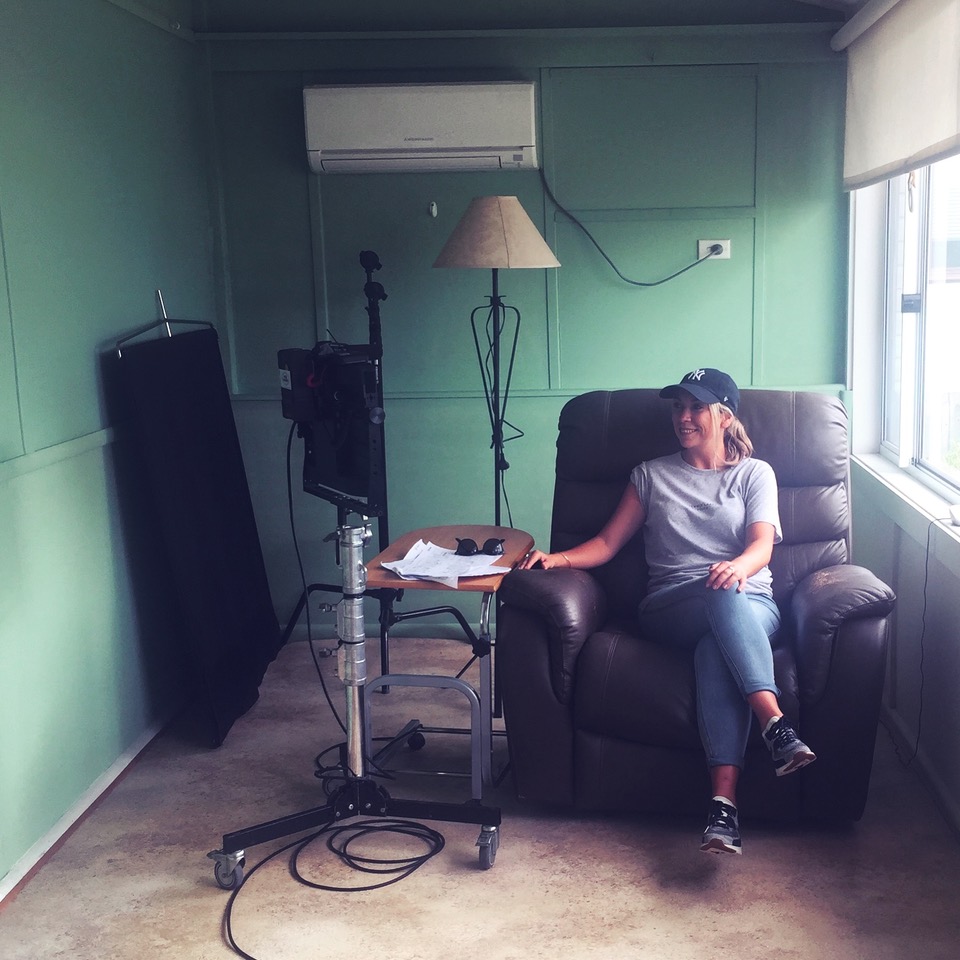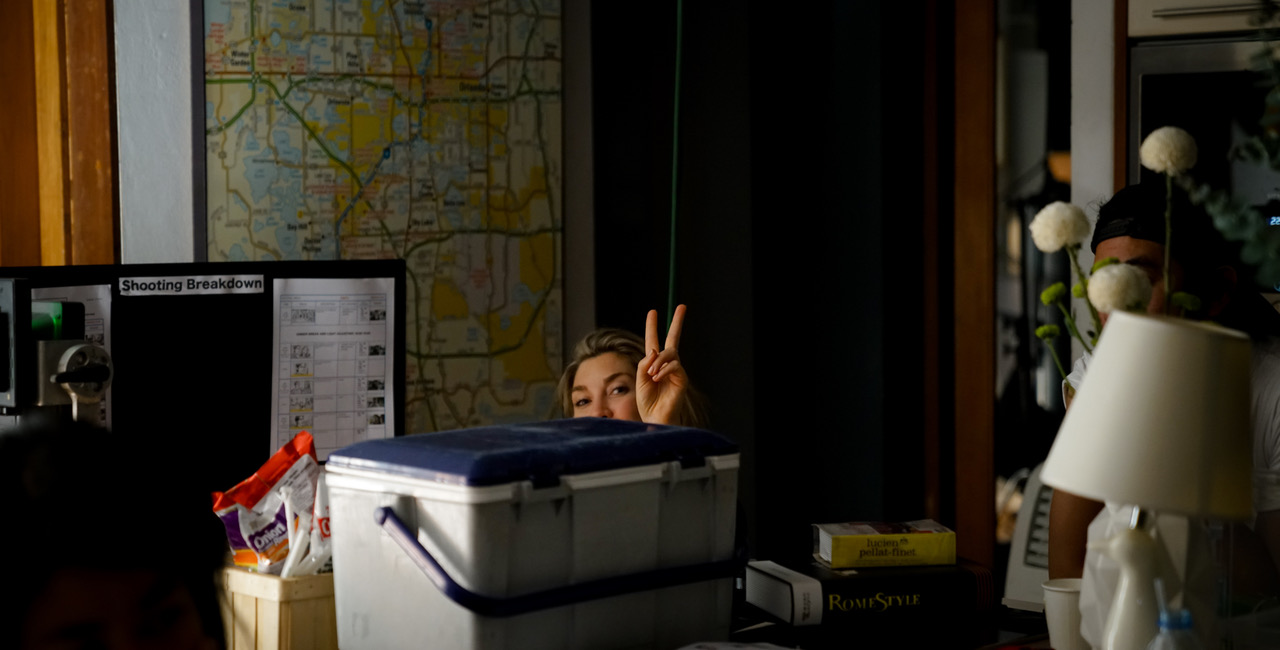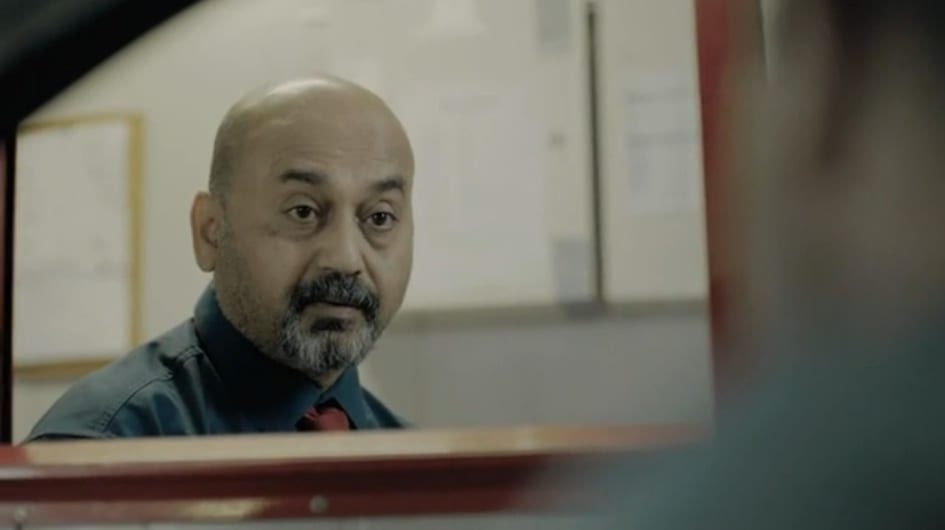How did the narrative for The World in Your Window evolve and what sparked the initial idea? It has limited verbal dialogue so did you evolve the script in an illustrative way?
The story was directly inspired from the time I spent making a documentary called King of Caravans, which was set in a small, run down, caravan park in New Zealand. There I observed many desperate, lonely people who were essentially stuck and hiding from the world.
After I completed that doco, I couldn’t stop wondering to myself how would someone get themselves out of that miserable environment and snap out of their depressed state. How could you get back on track and regain hope again? I began writing from a child’s perspective as it opened up more creative and unexpected narrative ideas.
I love the challenge of telling stories with little dialogue. So much in life is said without words and it’s fun to explore those subtleties and nuances between people without it all being said. It also helped further isolate the wee boy further and portray the alienating and bleak reality of a caravan park.
What is your process for directing especially in achieving the mannerisms and subtle looks which speak volumes visually?
My visual process is massively influenced by photographers and real life experiences.
I collect and print out tonnes of photos which I find in mags and books, then paste them into a scrap books and write ideas next to them. Like my films, I gravitate towards photographers who document little sub cultures or show everyday places and people in unexpected ways. They tend to find the truth and beauty in people and places which society has discarded or ignored.
My stories often evolve as a result of meeting an amazing character or stumbling upon a strange place. The experience or encounter lingers with me until I can’t help but make a film about it.
In regards to my process with performance, I love to combine non actors with actors. I’m always weaving in real people and friends into my fictional work. To me they bring an authenticity and weight to the work. I sometimes struggle to find the same grit with actors who come fresh off the agency books. I am a big fan of Mike Leigh’s methods with creating characters and drawing from the actors own lives and experiences, to then inform the character and story in the film.
What is your process for casting and how do you go about finding your unusual characters?
Because of my documentary background I’ve always got my magpie eye out searching for interesting characters. I love people and am innately curious, so it’s very easy for me to meet and find them.
An example of this, is I discovered the main boy in the short film at my local boxing gym. I was instantly intrigued by his look, his focus at boxing and his absolute love for his dad. The kid encapsulated the exact qualities I was looking for in the film.
Did the story evolve in the edit or even on the shoot or did you have the storyboard pretty much locked-down?
I had the story pretty locked down. The final film very much mirrors the script I wrote. However, I certainly shot loads more than what’s in there and due to the 15 minute time constraint I had to drop a lot of the scenes from the script. Like with editing all stories, it was a case killing your babies and making sure every scene is moving the story forward and getting Jesse closer to achieving his goal.
I had indeed storyboarded, but only used the storyboard as a way to strike up creative conversations with the DOP and crew, then I ditched them. On set the DOP and I are always searching for extra shots that further express the theme and ideas.
An example of this is including the wee boy boxing at the beginning of the film. This was never in the script but because Lolo was a boxer I found a way to include it. In the story it was great as it showed how persistent and tough he was. While also setting up a shared passion with his father, which had been subsequently lost.
What were the main challenges of the production and how did you resolve them?
One of the biggest challenges with production was staying true to my vision and voice. Once I had a rough edit I sent it to a few mentors and people who I admire. A flurry of comments came back and it was quite overwhelming. I was about to sabotage the purity of the film I had set out to make. I had to ask myself truthfully, is this the story I set out to make? And the answer was Yes.
I am SO pleased I did not keep bending to everyone’s feedback. I love the film as it is and at the end of the day you have to trust your instincts and make the film you have in your head. It’s hard to do though, as you are often exhausted and too close to the material.
What prompted you to make your latest documentary, My Break Up With God, rather than fiction?
I love docos as they allow me to dive into different worlds. I often use them to generate fictional work and they’re cheaper so I can just get stuck in without waiting for funding.
Caitlyn, the subject of my doc fascinated me and I was fascinated by her character, internal conflict and her unique line of work.
Does your process differ considerably when working to a brief for commercials and documentaries from creating your own short films?
Yes I take a slightly different approach when making commercials and documentaries to my short films. Budget or lack of budget often dictates approach.
But in each genre I always put huge effort into casting and trying to put forward the freshest and most interesting cast.
Characters are so important to my work and if I have exceptional cast, then I can develop so much with them. Even in commercials I push for the casting agents to get off the books and scout other places like gyms, clubs, and outside main cities etc. There’s nothing more delightful then discovering new talent.
I also tend to overshoot in all disciplines. It gives me options in the edit so I can mess with structure, as well as giving extra observed insights and details to the world and characters. I think you can really find the poetry and rhythm of the film from these extra observations which you glean on the day.
Please describe your childhood…
Ha, I love this question because I believe I had one of the most special childhoods. My parents are a beautiful combo of the arts and outdoors and always encouraged me to pursue my passions. Days as a kid were spent painting and creating art, as well as riding horses bareback through forests and swimming in the wild ocean.
I was fortunate enough to also grow up in the company of some really interesting, mischievous and creative adults (who didn’t have kids of their own). They looked after me and bended my brain with their stories and alternative lifestyles.
One was a kiwi photographer Deb Smith, who encouraged me to take our own photos. I loved seeing how she framed the world and how she found beauty in everyday/ unexpected things. Then there was Rupert, a heavily tattooed gay, musician who was the lead singer of the Headless Chickens. He was the best storyteller ever. We’d hang out painting, drinking red wine ( under age of course) and he’d tell me wild tales of sex, drugs and rock and roll. I could listen to Rupe’s stories all night and he seeded my love of telling stories and taught me to love rascal/ outcast characters.
What led you to directing?
It was at art school when I made my first documentary film about a pimp and prostitute who were married and had a kid together. An unconventional couple absolutely, but in love with one another. They challenged me on my views of love and sex and let me into their lives. It was so refreshing and fascinating to be in their company because it was so different to my own world. They were honest and courageous and side stepped the polite formalities. I became aware how film was a passport into these beautiful and bizarre worlds and it was addictive. Then to share their stories with an audience and to elicit emotion was utterly magic to me.
What drives your creative spark and what do you do if you feel blocked?
Characters, stories and diving into unknown worlds drives my creative spark. If I am ever creatively stuck I travel and get out of my comfort zone. I am an obsessive hitchhiker and I often call up my best mate to join me on a road trip hitchhiking. I’m most happiest when I’m out of my comfort zone. It’s where all my best work is generated.
Do you express yourself in any other art forms?
I paint when I find time but more often than not, I just do mad projects with friends. These might be photo series, building huts in public places, or putting on parties. At the core of all my films and art/ projects is the desire to connect people, offer random acts of kindness and remind people to find beauty in unexpected places.
If you can say – what are you working on now? I just read an interview with Jane Campion who says all the smart directors are not directing movies now but tv series….
Funnily enough I am working on an amazing Netflix TV series. I’m a big fan of taking on new challenges and switching across different fields. It sharpens my craft and reinvigorates me creatively. Not to mention you get to work with lots of different and talented people.
Zoe McIntosh is signed to The SweetShop for commercial representation
See her reel here
Zoe McIntosh website

